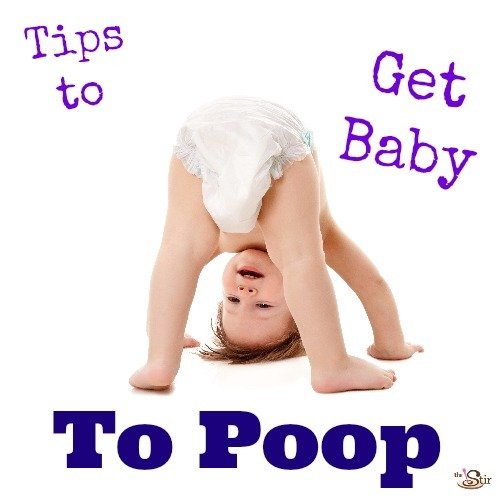Deliver a baby and, suddenly, it's all about poop. We talk about it, analyze it … even smell it during our few hours of sleep. We count our baby's bowel movements, note the consistency, and worry about constipation.
Moms especially spend a great deal of time stressing about that last one. According to Dr. Melissa King, pediatrician, director of urgent care, and Dr. Mom Squad blogger at Dayton Children's Hospital, it's for good reason. "Constipation can become chronic if it is not addressed," she warns.
So, what can mom do to help a constipated baby poop?
First things first: constipation is a common issue for babies, especially at certain developmental times, such as introducing solid foods or transitioning to whole milk from formula or breast milk … so do not panic. That said, it's important to establish a baby poop "baseline" to spot a problem.
"We typically like to see a daily stool in formula-fed infants," says Dr. King. "If your child hasn't pooped in 2-3 days, you need look at the big picture. Is this typical for your child or atypical? When your child does poop is it typically hard or soft? Is your child uncomfortable, more fussy, or refusing food/bottles?"
Breastfed infants typically poop more than once a day — sometimes after every feeding — because breast milk contains immunoglobins, produced by the immune system, which also work as laxatives.
More from The Stir: Baby Poop Colors & What They Mean
If you think your baby is constipated (hard stools, a change in pooping frequency, fussiness or not feeding well are all symptoms), here are some tips from Dr. King to help him poop:

1. Make sure baby is getting enough formula or breastmilk daily.
2. If baby has not started solid foods, you can try giving him 2-4 ounces of 100 percent fruit juice a day. If he is over 4 months of age, you can try sorbitol-containing foods, such as pear or apple purees.
3. Grains (other than rice cereal) and other high-fiber foods such as peas and prunes in the appropriate consistency may relieve symptoms for babies who are on solid food.
4. Providing your baby with 6-8 ounces of water every day — once you have introduced solid foods — sets up a good habit of water intake, maintains hydration, and helps baby poop.
If your child remains constipated, it's time to call your pediatrician. "Overall, if your baby seems to be not eating well, is more fussy, and has not had a bowel movement for a few days you should consider evaluation," says Dr. King. "Your child should be seen sooner if you are seeing hard rabbit-like pellets, blood, or your child seems to be in pain."
Has your baby had bouts with constipation? How did you help him poop?
**
Images via ©iStock.com/PeopleImages; iStock.com/3sbworld




